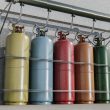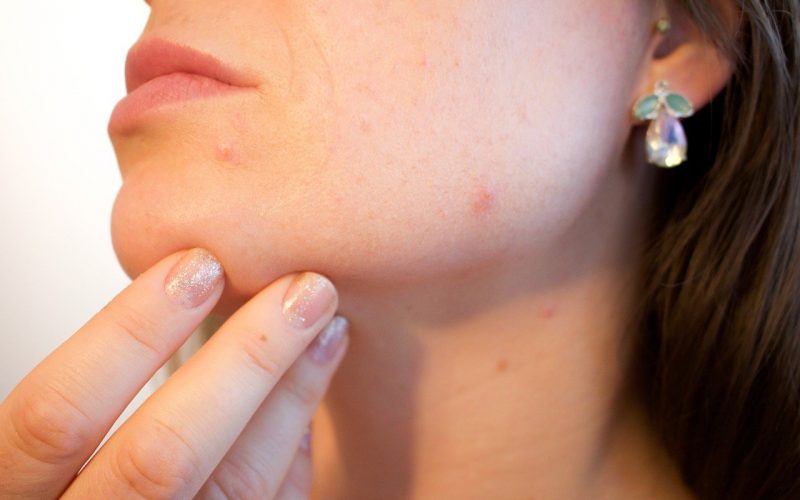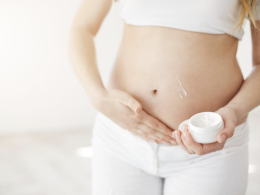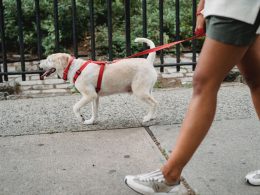Your teen years are not the easiest. On top of the everyday stresses of school and socialising, your body is going through a lot of changes. It’s perfectly natural to wake up on some mornings and not feel like your usual self – especially when you’re on your period. For those in their early teen years who are just starting to experience this, it can be a confusing and frustrating time. But, try not to worry – this is completely natural! And it is the roller coaster ride known as puberty. On average, girls go through puberty at 11 years old. However, this process of change can occur between the ages of 8 and 14, so it is nothing to worry about if you hit puberty a little before or after your friends. So, how do you deal with this change? Here are some top tips to help you handle puberty.
Hormone hassles: understanding your body
During puberty and menstruation, your hormones can seem a bit chaotic and, quite frankly, all over the place. Even women much older than you find hormonal changes difficult, so try to go easy on yourself. Finding ways to help you deal with the hormonal imbalance that puberty and your periods cause will help you work through these emotional times.
Sometimes, trying to figure out the reason why you feel consumed by emotions of anger, upset or confusion can add to the stress of the hormonal rollercoaster. Therefore, during your teen years, it’s important to take the time out to understand why you’re feeling like this and try to not put too much pressure on yourself.
You’re probably wondering why all these changes are happening and what’s causing your emotions to be so heightened. Well, it all comes down to hormones. When you reach puberty, your ovaries will start to produce oestrogen – the hormone that basically controls everything to do with reproduction. This hormone will regulate your periods, but it can also affect different parts of your body, especially when there’s too much or too little oestrogen. An imbalance can trigger both physical and emotional side effects. This could leave you with unexpected or heightened emotions, as well as making you feel more tired than usual, or giving you pains in your tummy.
Whilst these side effects can be uncomfortable, they are completely natural and are something all women experience during periods, sometimes even after their bodies have matured. Side effects can also include mood swings, weight gain, period cramps, fatigue, and acne.
Spots and acne
Now that we have discussed why we feel the way we do during puberty, let’s talk about how our bodies change and what you can do to handle changes like acne and spots.
It’s pretty common to develop acne during teen years due to the hormonal imbalance your body and skin is experiencing. In more extreme cases of acne, it is important to get in touch with your GP who may prescribe medication to help with outbreaks.
There are many self-help techniques you can practice at home to help deal with acne breakouts. For example, try not to wash the areas you have acne more than twice a day, and when doing so, use lukewarm water with a mild cleanser. This is because extremely high or low temperatures and excessive washing of the skin with harsh soaps or cleansers can irritate the acne even more and make it worse. It is also important to allow your skin time to breathe and avoid clogging up your pores. So, try to limit the amount of makeup you wear, opt for non-comedogenic products (by which we mean makeup and skincare products that have been designed not to clog your pores), remove makeup thoroughly after wear, and try to keep your hair off your face.
Periods and product advice You may be asking, how long does a period last? Periods typically last between three and eight days and occur every 28 days. However, many people experience irregular periods, so don’t worry if yours sometimes takes you by surprise! To help keep track of your periods and how frequently they occur, download an app such as Clue or Flo.
For girls in their early teen years who are experiencing their first periods, knowing how to deal with them and the best products to use can be difficult to get used to. With this said, here are some of our top tips.
Using period pads or teenage tampons are really popular choices. So, let’s look into the benefits of either choice.
The benefits of opting for tampons:
· Due to being smaller in size, they are easy to carry around in your bag.
· They are one of the few period products that allow you to swim or go in water whilst on your period.
· They are worn internally, which some people find more comfortable.
Why you might prefer pads:
· Many people find them easy to use.
· You don’t need to insert anything.
· Some people find them more comfortable than internal protection – but this is personal, so try to find what works best for you.
Of course, as you progress through your teen years, the preference of which period products you use may change. However, for early teens just beginning their periods, finding one they feel comfortable using is essential. If you’re just getting to grips with all of the options, why not start with a teens starter kit so that you can try out a few different products and find the right option for you?
The importance of ‘me time’
As well as adapting to the physical changes your body is experiencing, it is important to prioritise self-care during your early teen years. People of all ages can benefit from self-care and ‘me time’, so be sure to make space in your day to be kind to yourself, especially when you’re on your period!
So, take some time to put the phone down, focus on you, and find out what makes you feel relaxed. This might be running a hot bath, binging your favourite Netflix show, or curling up with a good book and a mug of warm hot chocolate.
For both girls and boys, your teen years are full of confusion and questions as to why your body is experiencing the changes it is. Whilst these can be difficult to adapt to, it’s important to remember that you are not alone and what you are feeling is completely natural – even though it might not feel like it. So, why not try our top tips above and learn how to ride the puberty roller coaster with confidence.









